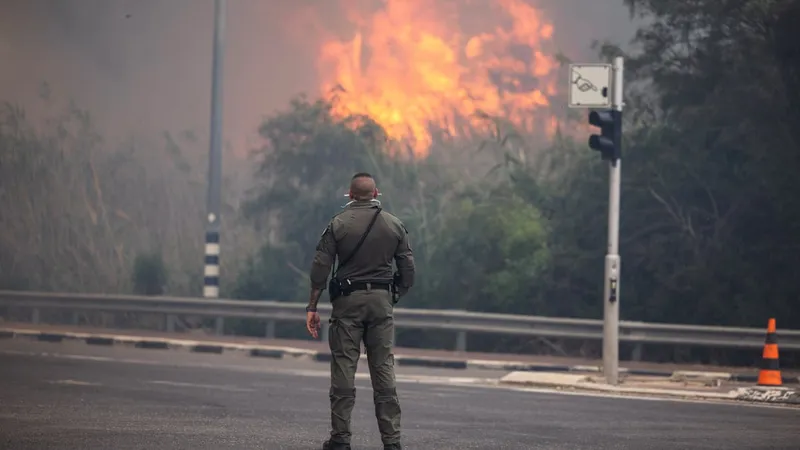Jerusalem’s hills are burning, and Israel’s firefighters are locked in a grueling fight against wildfires that just won’t quit. For weeks, flames have chewed through forests and scrubland, blackening the landscape and forcing thousands to flee their homes. The latest inferno, tearing through the outskirts of Jerusalem and nearby Beit Shemesh, has pushed the nation’s emergency services to the brink.
On April 23, a massive blaze erupted in the Eshtaol Forest, a green sprawl west of Jerusalem. Driven by bone-dry conditions and winds that howl like a freight train, the fire spread fast, swallowing hillsides and spitting embers that sparked new flames miles away. By April 30, Israeli authorities reported this was the worst wildfire outbreak in the country’s history. Five settlements were evacuated, their residents hustled to safety as smoke choked the air. The main highway linking Jerusalem to Tel Aviv—Highway 1—was shut down, stranding drivers and clogging alternate routes.
Firefighters, backed by eight firefighting planes and 110 ground crews, are battling on multiple fronts. The planes swoop low, dumping retardant in crimson clouds, while crews on the ground hack through brush to carve firebreaks. Reinforcements from abroad have started to arrive—Greece and Cyprus sent aircraft after Israel’s government put out a call for help. But the fires are relentless. High temperatures, hovering in the mid-90s, and gusts up to 40 miles an hour keep fanning the flames.
The toll is mounting. Over 10,000 acres have burned so far, with homes in Beit Shemesh and nearby moshavim reduced to ash. No deaths have been reported, but the economic hit is steep—early estimates peg damages in the tens of millions of shekels. Farmers are reeling, their orchards and vineyards scorched. Wildlife hasn’t been spared either; rangers report scores of animals, from deer to foxes, killed or displaced.
This isn’t Israel’s first brush with wildfires, but the scale feels different. Back in June 2024, Hezbollah rocket attacks in the north sparked blazes that took 48 hours to tame. Those were bad, but contained. The current fires, fueled by a brutal heatwave and months of scant rain, are a beast of their own. Prime Minister Benjamin Netanyahu visited the Beit Shemesh fire station on April 23, pledging full government support. “We’re throwing everything at this,” he said, his face grim as he surveyed the smoke-hazed horizon.
For now, the fight goes on. Firefighters are rotating shifts, grabbing sleep where they can. Evacuees are camped out in schools and community centers, waiting for word on when—or if—they can return. The skies over Jerusalem are smudged with ash, and the smell of char hangs heavy. Israel’s resolve is ironclad, but nature’s fury isn’t backing down.

